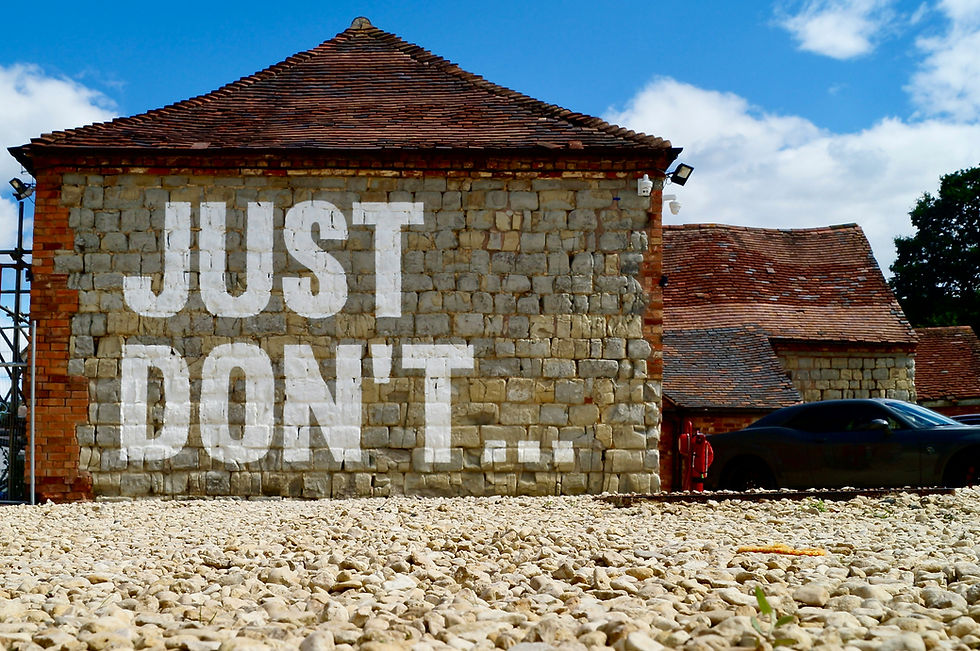“You Can’t Park Here.” A Lesson In Race At The Airport.
- Jessica Kiragu
- Sep 27, 2024
- 4 min read
It was the week after our wedding. My new spouse and I were driving to our honeymoon, but first, we needed to drop his parents off at the airport for their long flight home to Kenya.

They'd been in the States with us for a few months. We were in our early twenties and we'd grown accustomed to spending time with his parents—enjoying their support and closeness, and learning from their wisdom. We were sad to see them go, unsure when we'd next see them in person.
After entering the airport, we followed the signs to departures and pulled over. The airport bustled with activity. Cars lined the curb, and people milled about—pulling luggage from vehicles, exchanging final farewells, and sharing goodbye hugs. As we opened our car doors to do the same, a cop pulled up beside the driver's window. He blared his horn, flashed his lights, and announced over his speaker, "You can't park here."
My partner, ever the rule follower, pulled out and drove down a bit further, passing many parked cars, until we found some space to pull over again. The officer followed with flashing lights, pulled up next to our car a second time, blared his horn, and announced over his speaker, "I said, you can't park here."
Confusion set in. This officer had driven past at least five other vehicles doing exactly what we were trying to do. He was singling us out.
Once again, my partner moved our car away from the curb and drove further down. As before, we passed other vehicles parked at the curb, letting their travelers out. The officer pulled up beside us a third time, and we endured the same ordeal once more.
As my partner drove away from the curb this time, my frustration and worry grew. This officer was jeopardizing my new in-laws' chances of making their international flight. I said to no one in particular, "This cop is being racist."
Each time the white officer drove up beside our vehicle, he could only see my black partner and his black parents. He hadn't noticed me — the white woman in the front passenger seat.
We drove to the very last available spot. Any further and we'd be heading toward the airport exit. If we didn't stop, we'd have to loop back through the entire airport and all the traffic we'd just navigated—something we simply didn't have time for.
This time, when the officer pulled up beside us, he parked—blocking traffic—and exited his car. He approached my partner's rolled-down window and barked, "What's wrong with you? I said you can’t park here!" It was now or never—if we didn't let our travelers out, they'd likely miss their flight.
I leaned forward, making myself visible to the officer. Surprise flashed across his face, and my anger boiled over. "Oh, you didn't notice the white woman in the front seat, did you?" I snapped. Then, composing myself, I added more respectfully, "Sir, we're not parking. We're unloading passengers in the designated area." With that, I exited the car and headed for the trunk.
The officer observed silently as I unloaded the luggage. After I pointed out that he had targeted our car because he only saw black people inside and requested his badge number, he wordlessly turned and walked back to his vehicle, ignoring my request. At last, we were able to do what we'd come for—the same task everyone else was doing, the very purpose of this section of the airport.
This was one of the first times racism felt personal to me. It was a moment when I began to understand what it means to be white in the U.S. I glimpsed the protection, safety, and ease of life that whiteness affords me—and felt the frustration when these privileges are threatened. I saw the stark difference in how black people in the U.S. are treated by those in power.
At the time, I told myself my anger and frustration stemmed from the blatant injustice. I was furious about how my loved ones were being treated and sensed a cloud of fear hanging over us. What might this cop do? What if they missed their flight home? I was also anxious about the impression my new family would have of my country—and by extension, me. But that wasn't all I was feeling.
The intensity of the moment was heightened because it was one of the first times I witnessed racism directly impacting people I love. It was one of my first experiences where race became personal. Before this, I'd found ways to explain away the racism I witnessed—a reflexive reaction reinforced throughout my life. This incident unsettled me by cracking the story I'd constructed about race.
The unease has lingered. What I witnessed that day wasn't an isolated event. It was just one in a long line of similar moments that directly contradict the narrative I’d constructed about whiteness and racism. It was the start of my realization that race matters profoundly in the U.S., and always has.




Comments